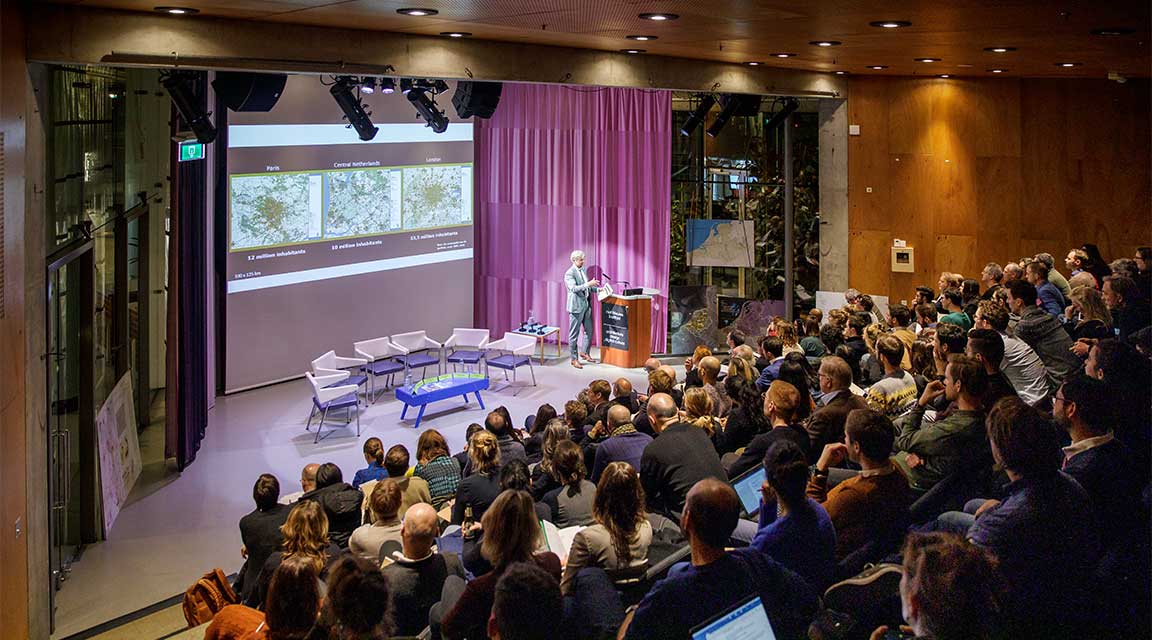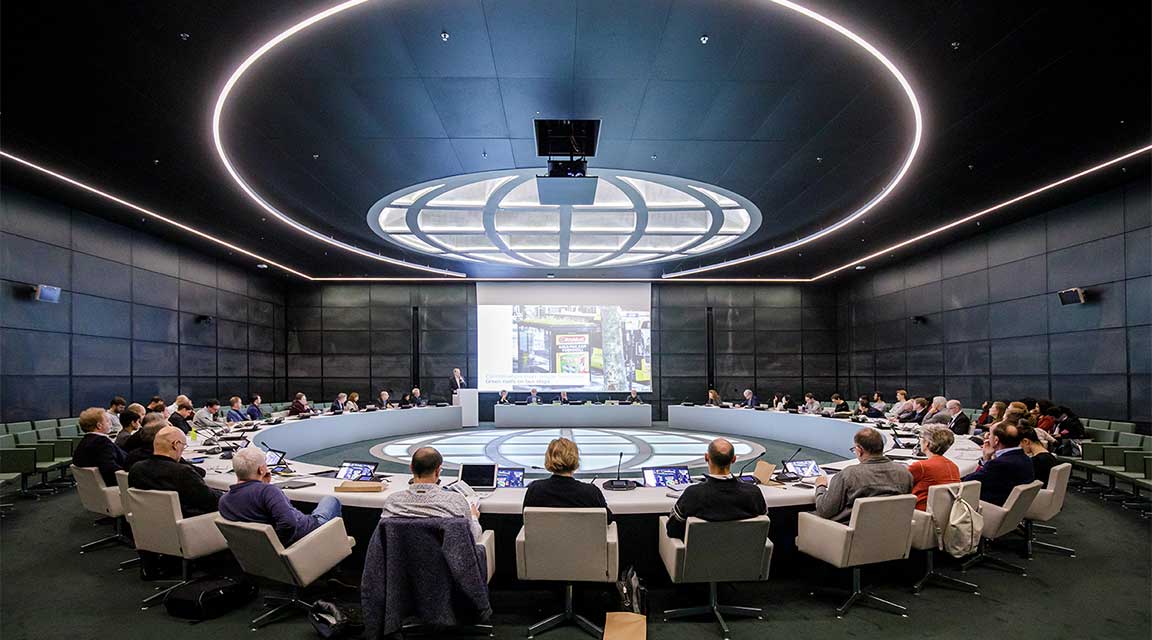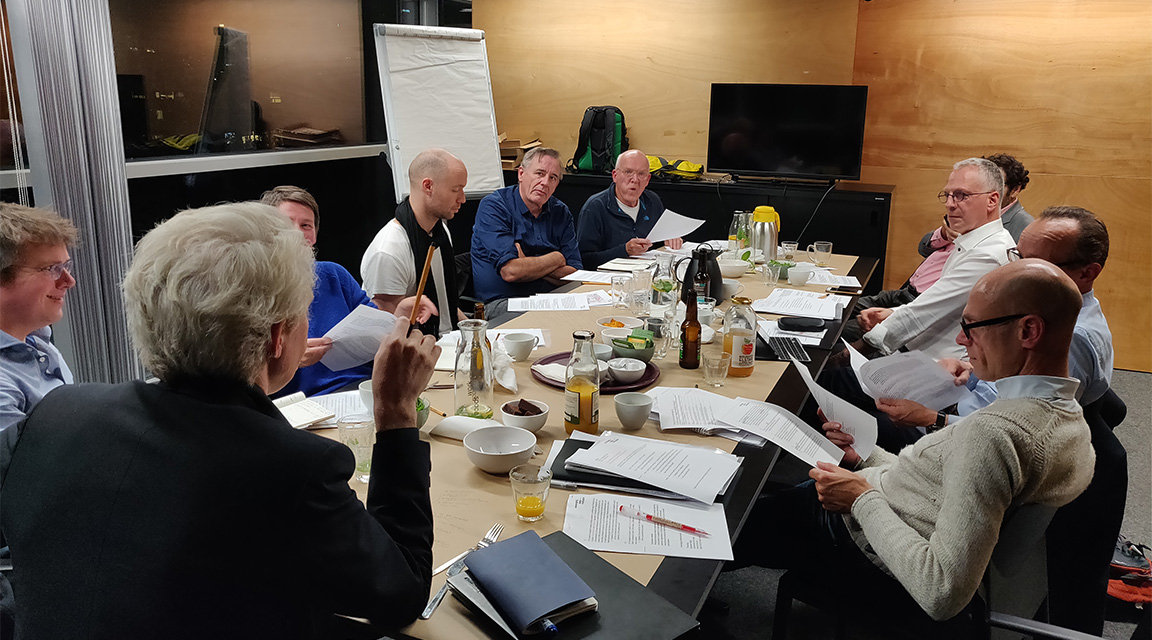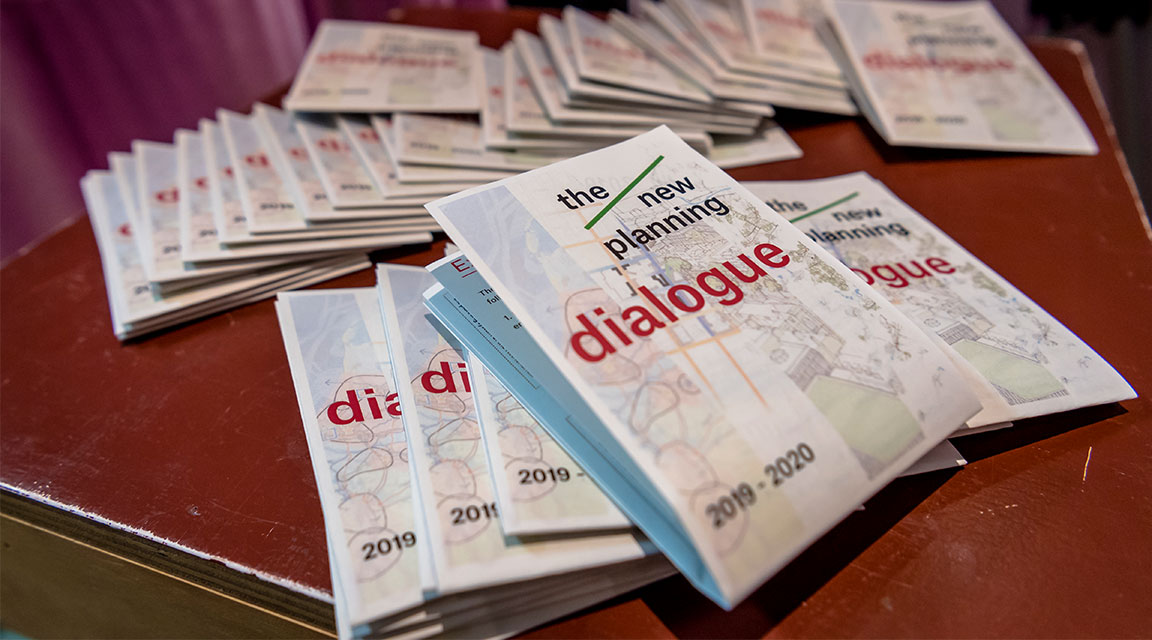It's time for a planning paradigm shift (and you can be part of it)
The New Planning Dialogue
The New Planning Dialogue aims to stimulate a change in the practice of spatial planning to ensure a more sustainable and inclusive development. It uses the format of dialogue and discussions to push the paradigm shift in the practice of spatial planning that we believe is more necessary than ever. This collaborative, co-creative research project aims to create a new framework for planning that stands up to challenges of the 21st century.
About this project
The New Planning Dialogues is an continuous, dynamic research project that aims to sketch the outlines of a new paradigm for spatial planning. The core of this project is situated with a series of interactive events where spatial planning professionals get together to share knowledge, experience and inspiration.
We believe that a fundamental breakthrough in the discipline of spatial planning is needed in order to face the challenges of the 21st century. The move towards renewable energy, circular economies and happy, healthy and thriving cities requires a more integrated approach to planning. As such, The New Planning is as much a research project as it is a movement.
We work together with a wide range of partners and stakeholders. Collaboration, conversation and inclusivity are at the heart of this project. We aim to connect theory to practice and vice versa. The goal is to co-create a list of approaches and working methods that can be inspiring for everyone. We draw upon local, provincial and regional case studies in the European context in order to make comparative analyses and reflections.
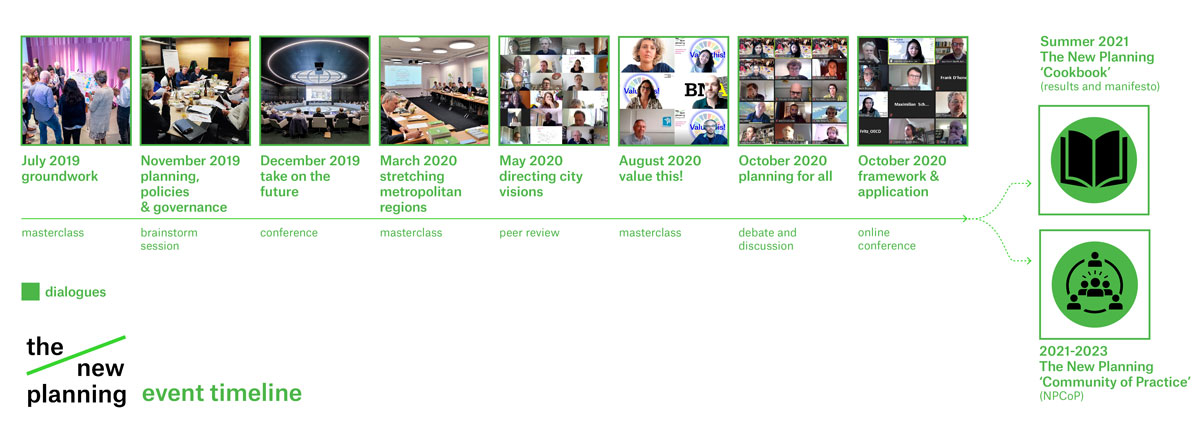 Events timeline.
The New Planning Dialogue
Events timeline.
The New Planning Dialogue
The project is process-oriented rather than product-oriented.
However, we do work towards a collaborative publication that can be described as a cookbook for change: not only does it explain what should be changed, it also provides the ingredients and the actions involved. This is estimated to be launched at the ISOCARP 2021 convention. Additionally, we are formulating a manifesto for a new, workable model in the Dutch context, to be published in spring 2021.
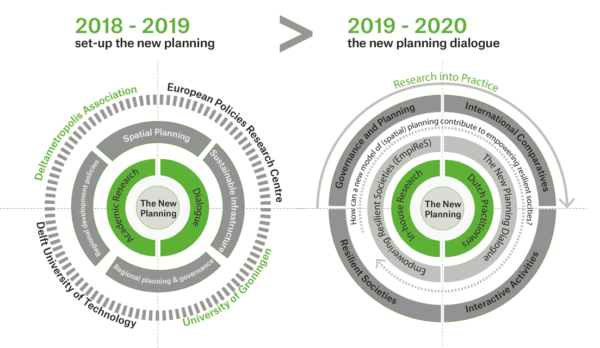
The dialogues started in mid 2019 and have thus far covered various scales (national, regional, city, local) and subjects, such as the urgencies of the Dutch spatial planning agenda, societal and technological changes over time, alternative instruments or components of a planning model, vision-making, collaboration, decision-making, sustainable development goals, networks and knowledge dissemination and more. On this page you can read more about the results so far.
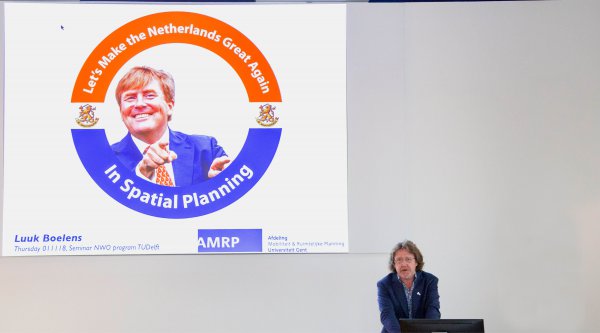
Can I be part of this?
You certainly can. Planners, policymakers, developers, academics and others are warmly invited to discuss the pressing issues and the crucial questions regarding the future of spatial planning. The New Planning Dialogue is an open, inclusive platform.
To join the dialogue, to debate, influence and revolutionize the planning new model, to support the project and participate, please don’t hesitate to connect to us.
What can I expect from the dialogues?
— An opportunity to discuss and share knowledge and voice your opinions among a peer-group of decision makers in the Netherlands.
— International reflections on the Dutch spatial planning system through comparative analyses of planning and policy approaches across Europe.
— Qualitative interviews with key actors and experts.
— A continuous output of publications and a dedicated dissemination strategy.
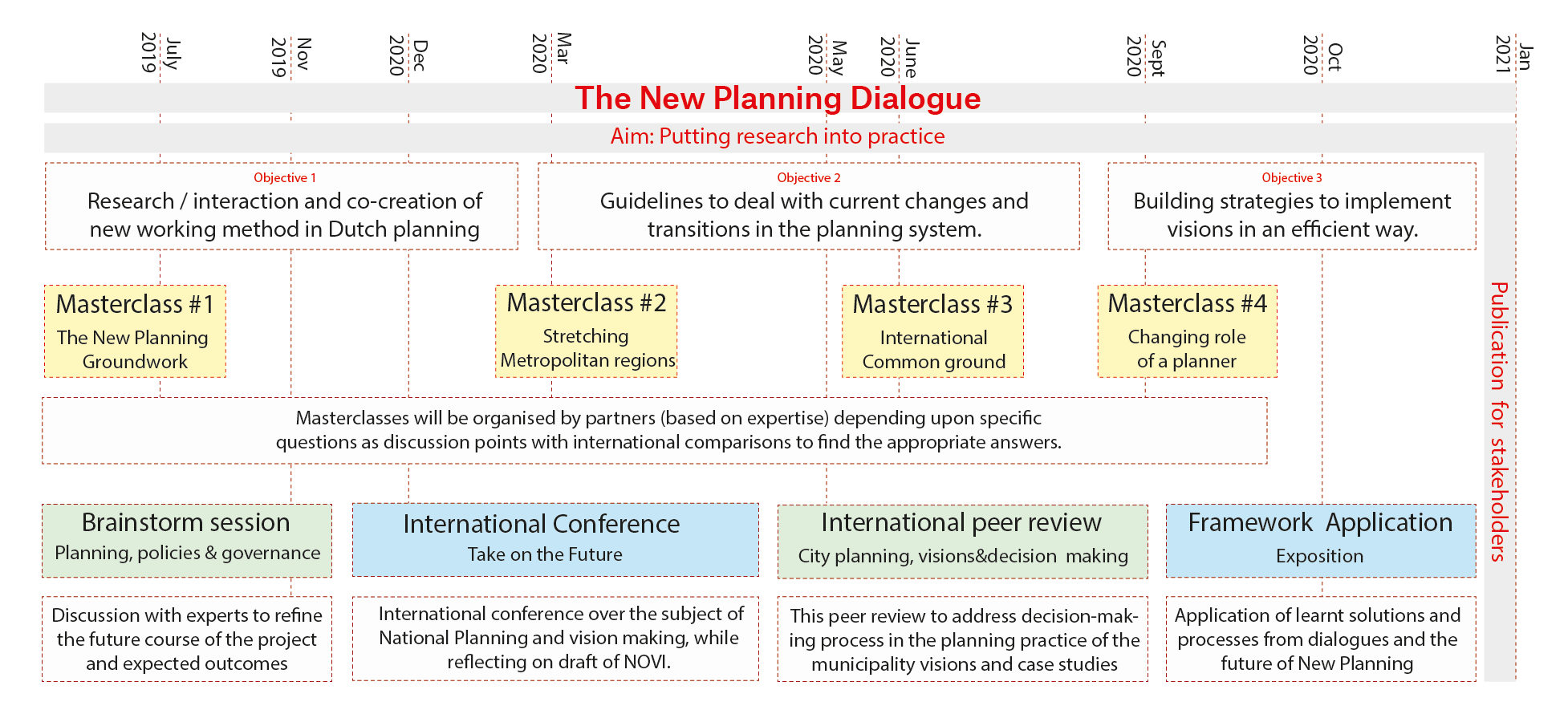 A series of practitioner's activities.
The New Planning Dialogue
A series of practitioner's activities.
The New Planning Dialogue
Why do we need a new paradigm?
The New Planning Dialogues are part of a larger search for The New Planning Paradigm. Why do we need a new paradigm and what will it look like?
In 21st century has seen a number of critical urban challenges arising from climate change, sectoral transitions, globalisation and digitalisation, global economic competition, and increasing social and economic disparities. The conventional systems of planning are no longer able to cope with those challenges. A new paradigm is urgently needed because the institutions that proved so successful in meeting the post-war challenges of growth, housing need, and environmental conservation are no longer fit for purpose.
Working within the Dutch context, with a planning tradition that was always at the forefront of planning systems, we now realise on a day to day basis that we need to upgrade our planning mechanism. Dutch spatial planning practice is evolving incrementally in an ad hoc and theoretically uninformed way. The system is ill-prepared to tackle the urgent challenges of sustainability, resilience, the energy transition and information age.
That’s why we propose a platform to design a fundamentally new framework of spatial planning that will deal with these new challenges in an integrated way. The new Environmental Act (de Omgevingswet), which will radically change planning as we know it, is an opportunity to implement this new model.
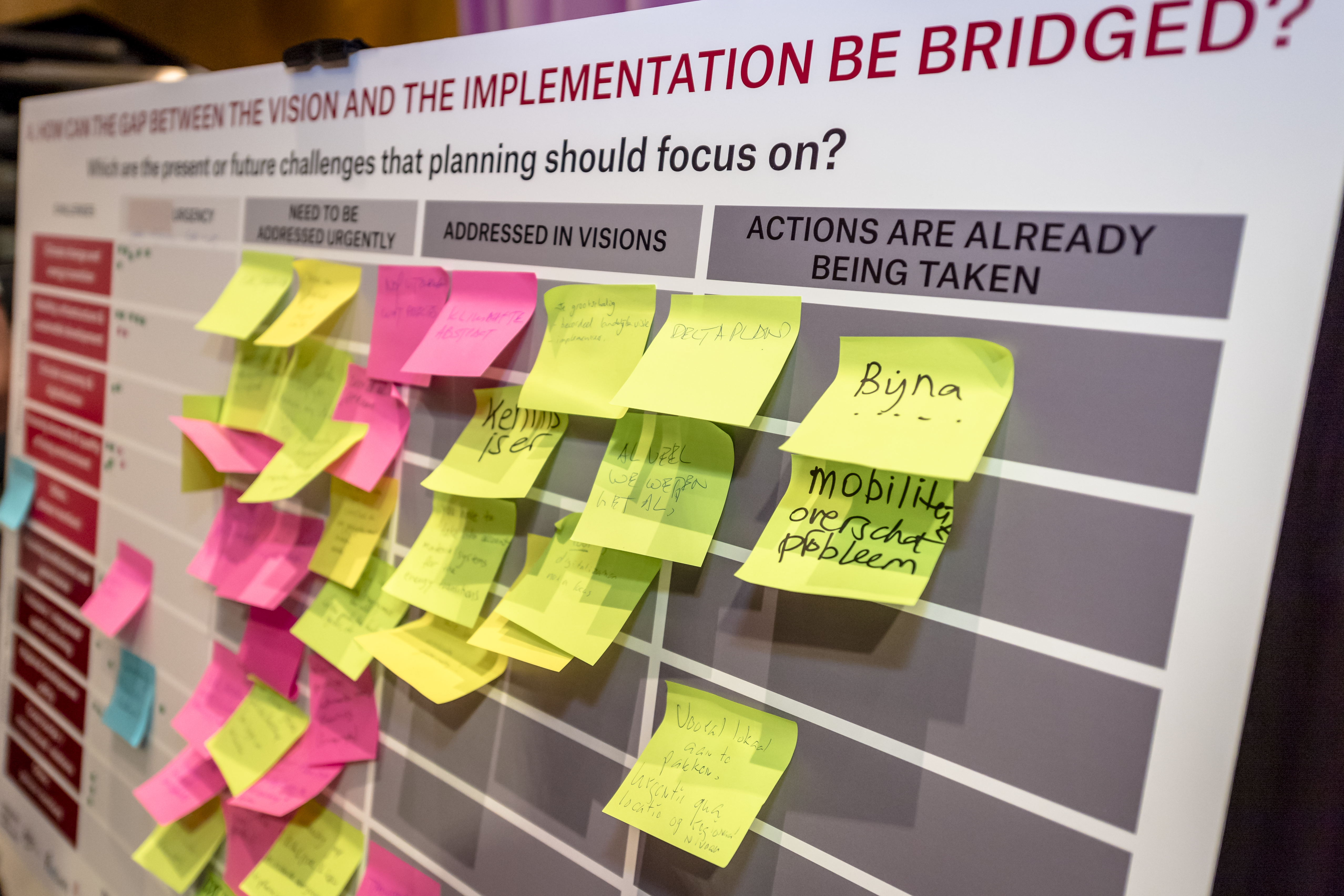 Groundwork, 4th July 2019.
The New Planning
Groundwork, 4th July 2019.
The New Planning
How did this start?
The New Planning was conceptualised with the four main partners in July 2018. The NWO (Netherlands Organization for Scientific Research) pre-proposal was submitted in September 2018, which led to the formation of a consortium of stakeholders and a subsequent matchmaking event in November 2018. The eagerness of the practitioners led us to initiate The New Planning Dialogue as a project running in tandem with the research. The New Planning Dialogue was then further developed as a full fledged project with a series of activities starting from July 2019. Read more about it here.
Partner and Stakeholders
By creating a consortium of academics, governments, private companies and civil society, and using insights from numerous international examples, we propose to create a pro-active ways of working in the field of planning. Other than the four partners we are including social partners such as experts, practitioners and collaborators, from international and national backgrounds.
Core partners
Vereniging Deltametropool, Delft University of Technology, Rijksunversiet Groningen, European Policies Research Centre
Co-financers (In-cash and In-kind)
Arcadis Nederland BV, Gemeente Amsterdam – Ruimte & Duurzaamheid, Gemeente Rotterdam, BZK – Directie Ruimtelijke Ontwikkeling, Ministerie van Infrastructuur en Waterstaat – IenW, Gemeente Leiden, Provincie Gelderland, Provincie Groningen, Gemeente Den Haag, Studio Hartzema, Open-Kaart, METREX, L’Instituut Paris region.
Dutch collaborators
Nationale Omgevingsvisie –NOVI, Ministerie van Infrastructuur en Waterstaat, Ministerie van Economische Zaken en Klimaat, Interprovinciaal Overleg (IPO), Provincie Gelderland, Provincie Noord- Holland, Provincie Groningen, Provincie Noord Brabant, Gemeente Den Haag, Gemeente Rotterdam, Gemeente Amsterdam, Gemeente Utrecht, Gemeente Leiden, Gemeente Eindhoven, Staatbosbeheer, Rijkswaterstaat, PBL Planbureau voor de Leefomgeving, Arcadis Nederland BV, Metropoolregio Amsterdam, Metropoolregio Rotterdam-Den Haag, Metropoolregio Eindhoven, De Open Kaart.
International collaborators
L’Instituut Paris region, France, Department of Strategy, Belgium, Metropolregion Rheinland, Germany, Demos Helsinki, Finland, City of Malmö, Sweden, University of Lisbon, Portugal University of Manchester, UK TU München, Germany Université Lumière Lyon, France Ghent University, Gent, Belgium, Departement Omgeving Vlaanderen, Benelux, Ministerium für Bauen, Wohnen, Stadtentwichlung und Verkehr des Landes Nordrhein-Westfalen (MBWSV), , Regionalverband Ruhr, City of Helsinki, OVAM, City of Zurich, City of Helsinki, Lyon, Zurich, Oslo, Metropoolregio Amsterdam, Metropoolregio Rotterdam-Den Haag, Metropoolregio Eindhoven, Metropolitan city of Turin, Metropolitan region of Paris, Gipuzkoa, Spain, Rhein-Neckar (Ludwigshaven-Mannheim), Frankfurt, Euskadi, Spain, Brussels
